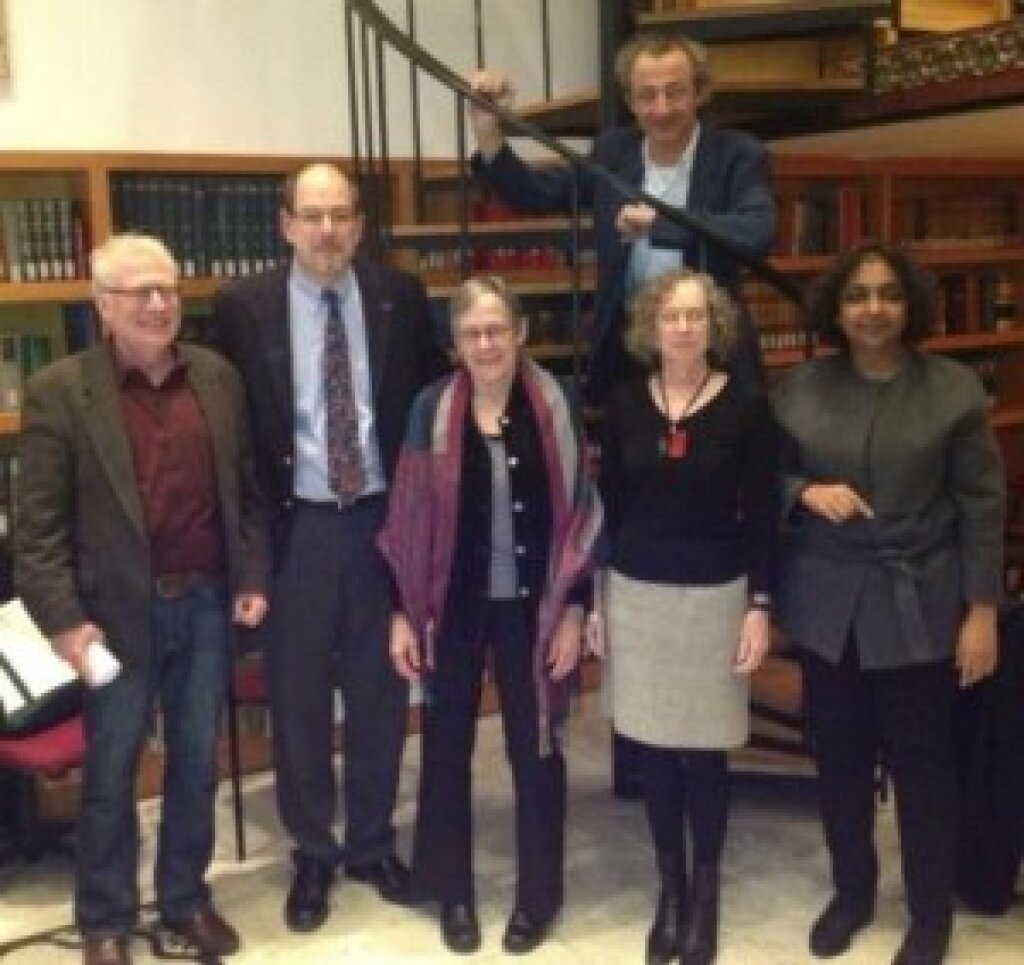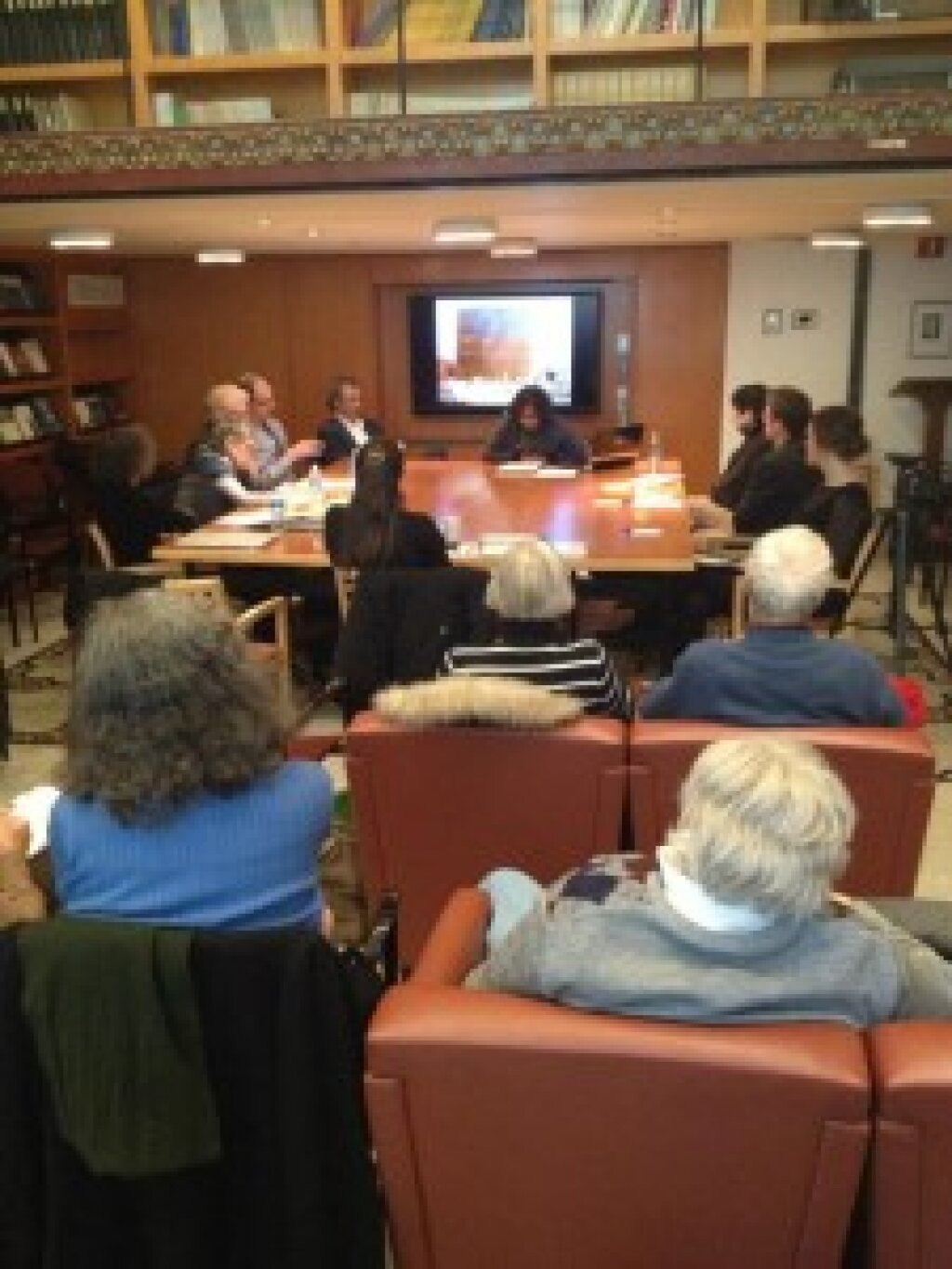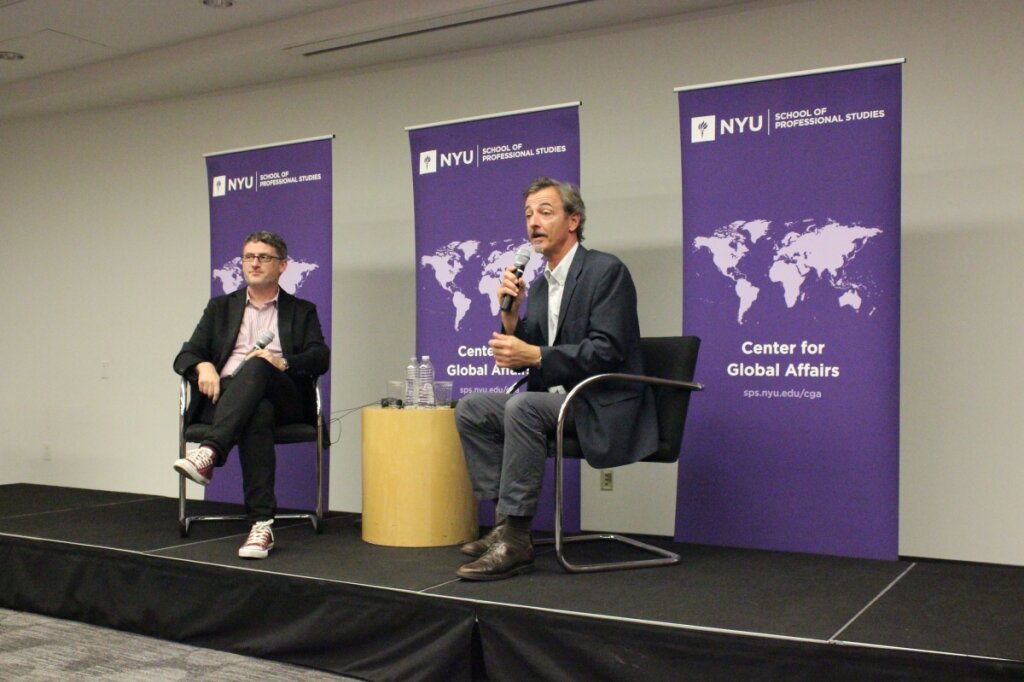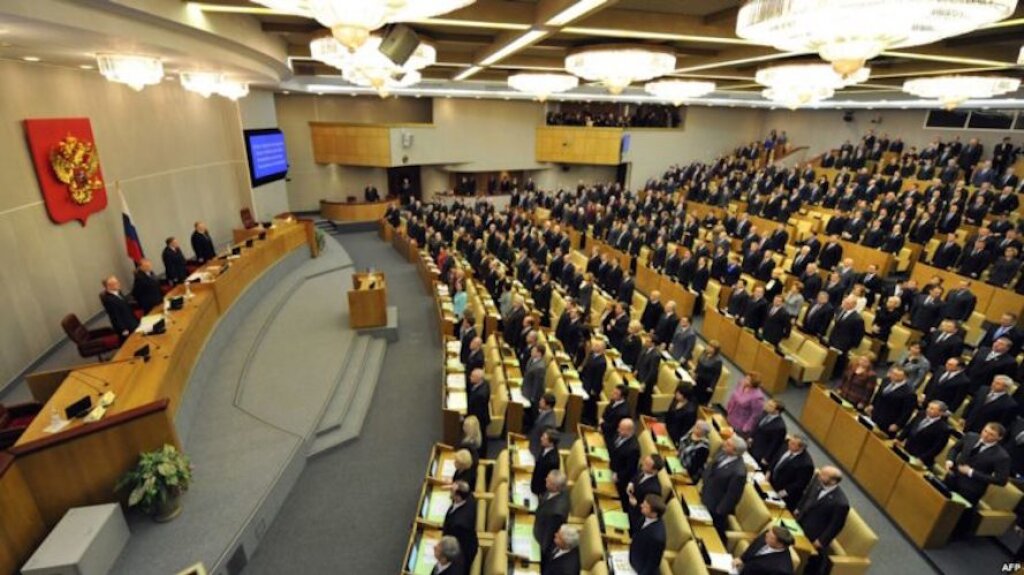In cooperation with the Hagop Kevorkian Center, the Jordan Center recently hosted another symposium in our ongoing Diasporas Series. On Thursday, March 14, the theme was “The Movement of Ideas,” with special emphasis on the growing influence of neo-liberalism in former Soviet republics, and in Asia. Guest speakers included Gerry Easter (Boston College), Kanchan Chandra (NYU), Barbara G. Katz (NYU), Molly Nolan (NYU), and Steven Solnick (President, Warren Wilson College).
Gerry Easter started the day’s event with presenting some of the main arguments in his newest book Capital, Coercion, and Postcommunist States. Focusing on tax collecting policies in Russia and Poland after the dissolution of the Soviet Union, Easter argued that the universal assumption that political reforms and change in society will take place as a natural consequence of the introduction of market economy is false. In fact, Easter’s research shows that in the state’s attempt to extract revenue from its citizens, the new “Russian Realist State” was introduced. Here Easter uses the term “realist” as it is utilized in political science, where it defines how power resources are distributed. Power resources are traditionally divided in four different sectors: coercive, economic, bureaucratic, and ideological power. While in a neo-liberal political environment these power resources are shared between the market and the state in an organic matter, Easter found that the Russian case is quite different. In Russia all power resources are still controlled by the state. It is therefore wrong to speak of the Russian political and economic system as being of a neo-liberalist nature. This proves that even though economic and ideological models are borrowed and mimicked, they are not necessarily unidirectional.
Kanchan Chandra’s presentation was named “The New Indian State” and focused on the economic and political development in India following the economic reforms of the early 1990s. While economic liberalization often is associated with the state losing influence and power, Chandra’s research shows that the Indian state has in fact grown, and become more influential after 1991. Although encouraging an open market and growth in the private sector, the state has simply relocated, not retreated. Private businesses still have to go through a variety of state sectors in order to carry out their initiatives. Having the state’s support thus becomes a new type of capital, which is essential for new businesses. Although one might think of this as moving away from democratic development, Chandra argued that India is closer to being a well-functioning democracy due to this relationship between the state and the open market. Because of the enormous state democracy, business owners and other actors have more doors to knock on, and their engagement with the state increases.
Barbara G. Katz gave an interesting and insightful account of the history of the term neo-liberalism. While the term itself came to be synonymous with market-fundamentalism, its origin stems from John Williamson’s notion of “the Washington Consensus,” which, as Katz pointed out, was originally not to be simplified to meaning market-fundamentalism. While many interpreted the fall of the Soviet Union as the victory of the market, Katz showed how the transition to market economy was not a salvation for most Post-Soviet Republics, including Russia. While the idea that the market would naturally blossom wherever it was introduced seemed simple enough, in real life the transition process was indeed far more complex. In fact, the introduction of a market based economy had a range of negative impacts. Katz showed how all the former republics are still struggling with economic difficulties. Even in Russia, the country’s GNP was still lower in 2007 than it had been in 1989. At the same time, economic liberalization does not necessarily signify the development of political democracy, as the lack of respect for law and new state institutions in Russia shows. Thus, the movement of an idea is not to be confused with the movement of an entire political and social structure.
Molly Nolan looked at the development of neo-liberalism, and how it changed as it moved from Europe to the United States. Although one tends to focus on the economic elements of neo-liberalism, Nolan argued that one should not ignore the state itself, nor approach it as a corpus that can change its dynamics over night. In fact, the state has a dynamic of its own, which includes more than economic culture. As Nolan pointed out, the system of neo-liberalism might be neat, but its practice can indeed be messy. She thereby emphasized the importance of broadening the debate on neo-liberalism, by including social reactions, and by paying more attention to socio-political development in a given country.
Steven Solnick focused on Russia, and raised the question if there ever existed an easy way from communism to market economy. While many have accused Russian politicians of the 1990s of being naive in their approach to neo-liberalism, Solnick points out that it has nothing to do with naivety, but rather the fact that they were incapable of transforming the political system, and lacking a civil society that was ready and prepared to meet the new challenges. Due to this, Solnick argued that it is not neo-liberalism itself that is to blame for the negative economic development that took place after the fall of the Soviet Union. Neo-liberalism can be seen as popular mobilization but in Russia’s case it was also, as Solnick put it, “the straw man that turned into a piñata.” However, this has in the last ten years proven an advantage to the Russian government, as neo-liberalism could be coined as the negative force from which the state would save you.




